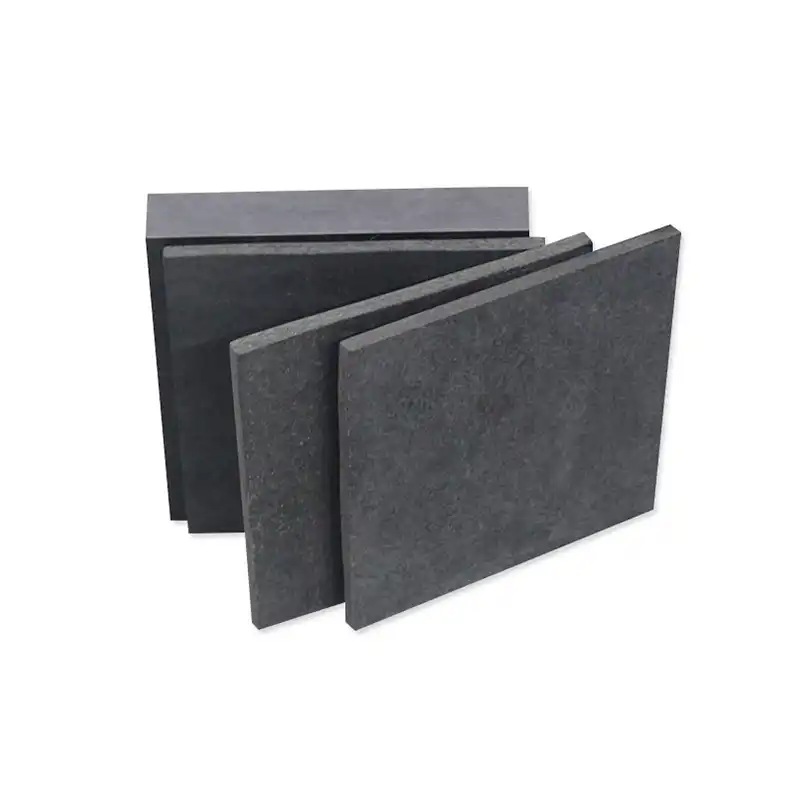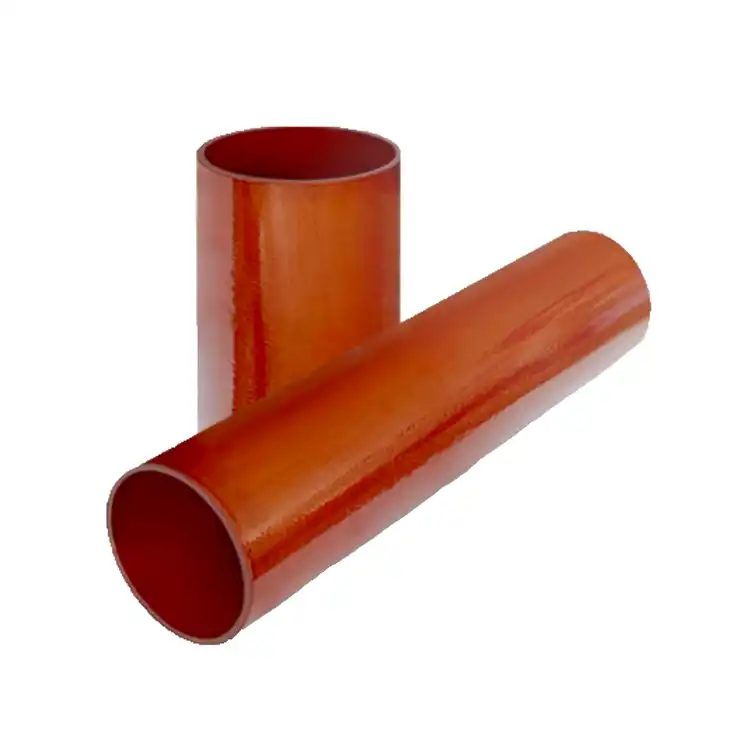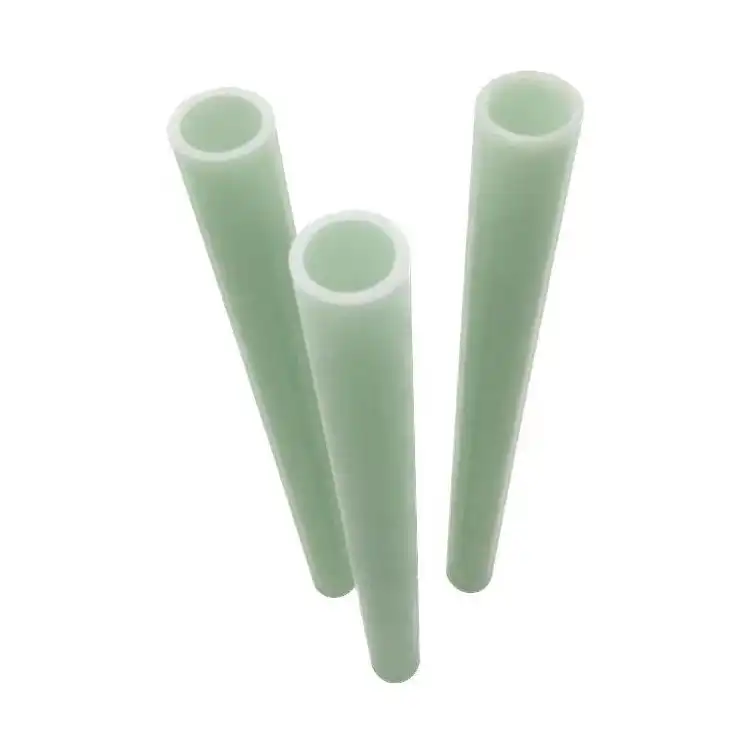Can 3240 Epoxy Sheets Improve Electrical Insulation Performance?
2024-07-08 16:59:57
Electrical insulation is a critical factor in the reliability and safety of electronic devices and systems. With advancements in materials science, various insulating materials have emerged, each with unique properties and benefits. Among these, 3240 epoxy sheets have gained considerable attention for their potential to enhance electrical insulation performance. This blog explores whether 3240 epoxy sheets can indeed improve electrical insulation performance by examining their properties and comparing them to other insulating materials.
What Are the Electrical Insulation Properties of 3240 Epoxy Sheets?
The primary function of an insulating material is to prevent the passage of electrical currents between conductive parts, ensuring safety and efficiency. 3240 epoxy sheets are specifically engineered to provide superior electrical insulation. This section delves into the specific electrical insulation properties of 3240 epoxy sheets and their advantages.
High Dielectric Strength
Dielectric strength is a measure of an insulating material's ability to withstand high voltages without breaking down. 3240 epoxy sheets exhibit a high dielectric strength, typically in the range of 20 to 30 kV/mm. This makes them highly suitable for applications that require robust insulation to prevent electrical breakdowns. In comparison, traditional materials like mica and fiberglass have lower dielectric strengths, often below 20 kV/mm. The high dielectric strength of 3240 epoxy sheets ensures that they can handle high-voltage applications more effectively, reducing the risk of electrical failures.
Low Dielectric Constant
The dielectric constant of a material affects its ability to store electrical energy. Materials with a low dielectric constant are preferable for insulation purposes because they minimize energy loss. 3240 epoxy sheets have a dielectric constant in the range of 4 to 5, which is relatively low compared to other insulating materials. For instance, mica has a dielectric constant of around 6, while fiberglass ranges between 5 and 7. The lower dielectric constant of 3240 epoxy sheets helps in reducing energy dissipation, making them more efficient for insulating purposes, especially in high-frequency applications.
High Volume Resistivity
Volume resistivity is a measure of a material's resistance to electrical conduction through its bulk. High volume resistivity is essential for effective insulation. 3240 epoxy sheets boast high volume resistivity, often exceeding 10^14 ohm-cm. This high resistivity ensures minimal leakage currents, enhancing the overall safety and efficiency of electrical systems. Compared to other materials like polyethylene and PTFE (Teflon), which also have high resistivity, 3240 epoxy sheets offer a balanced combination of mechanical and electrical properties, making them a versatile choice for various applications.

How Do 3240 Epoxy Sheets Perform Under Thermal Stress?
Thermal performance is a critical aspect of insulating materials, particularly for applications involving high temperatures. Insulating materials must maintain their properties under thermal stress to ensure consistent performance. This section explores how 3240 epoxy sheets perform under thermal conditions and their advantages over other materials.
Thermal Stability
3240 epoxy sheets exhibit excellent thermal stability, maintaining their mechanical and electrical properties at elevated temperatures. They are typically rated for continuous operation at temperatures up to 155°C, with some variants capable of withstanding even higher temperatures. This thermal stability is crucial for applications in harsh environments, such as industrial machinery and automotive components. In comparison, materials like mica can withstand temperatures up to 600°C, while PTFE operates effectively up to 260°C. Despite the higher thermal limits of some materials, the overall performance and cost-effectiveness of 3240 epoxy sheets make them a competitive choice for many applications.
Low Thermal Expansion
Thermal expansion is the tendency of materials to expand when heated. Insulating materials with low thermal expansion are preferred as they maintain dimensional stability, reducing the risk of mechanical stress and deformation. 3240 epoxy sheets exhibit low thermal expansion, ensuring that they retain their shape and integrity under varying thermal conditions. This property is particularly beneficial in precision applications where tight tolerances are critical. Materials like PTFE and silicone, while having excellent thermal properties, can exhibit higher thermal expansion, which may not be suitable for all applications.
Heat Dissipation
Effective heat dissipation is essential to prevent overheating in electrical systems. 3240 epoxy sheets have moderate thermal conductivity, which allows for efficient heat dissipation while maintaining insulation properties. This balance helps in managing heat generated during the operation of electrical components, reducing the risk of thermal damage. In comparison, materials like ceramics offer higher thermal conductivity but may not provide the same level of mechanical flexibility and ease of processing as 3240 epoxy sheets.
What Are the Mechanical Advantages of 3240 Epoxy Sheets?
Beyond their electrical and thermal properties, the mechanical characteristics of insulating materials play a significant role in their overall performance. This section examines the mechanical advantages of 3240 epoxy sheets and how they contribute to their effectiveness as insulating materials.
High Tensile and Flexural Strength
3240 epoxy sheets are known for their high tensile and flexural strength. Tensile strength measures the material's resistance to breaking under tension, while flexural strength indicates its ability to resist deformation under load. With tensile strengths often exceeding 300 MPa and flexural strengths up to 450 MPa, 3240 epoxy sheets provide robust mechanical performance. This strength ensures that the sheets can withstand physical stress without cracking or breaking, making them suitable for demanding applications such as structural supports in electrical systems. In comparison, fiberglass and mica offer lower tensile and flexural strengths, limiting their use in high-stress environments.
Impact Resistance
Impact resistance is the ability of a material to absorb energy and resist damage from sudden impacts. 3240 epoxy sheets exhibit high impact resistance, making them durable and long-lasting even in challenging conditions. This property is essential for applications where the material may be subjected to mechanical shocks, such as in automotive and industrial equipment. Other materials like PTFE and silicone, while flexible, may not offer the same level of impact resistance as 3240 epoxy sheets, which combine rigidity with toughness.
Chemical Resistance
In many applications, insulating materials must withstand exposure to various chemicals and environmental factors. 3240 epoxy sheets offer excellent chemical resistance, protecting against moisture, oils, and other contaminants that could compromise their performance. This resistance ensures longevity and reliability in harsh environments. Compared to materials like silicone, which also provides good chemical resistance, 3240 epoxy sheets offer a more balanced performance in terms of mechanical strength and thermal stability.
Conclusion
3240 epoxy sheets offer a comprehensive solution for improving electrical insulation performance. Their high dielectric strength, low dielectric constant, and high volume resistivity make them exceptional insulators. Additionally, their thermal stability, low thermal expansion, and heat dissipation capabilities ensure reliable performance under thermal stress. The mechanical advantages of high tensile and flexural strength, impact resistance, and chemical resistance further enhance their suitability for a wide range of applications. Compared to other insulating materials, 3240 epoxy sheets provide a balanced combination of properties that address the diverse needs of modern electrical systems.
References
1. "Epoxy Resin: Material Properties and Applications" - ScienceDirect
2. "Dielectric Materials in Electrical Insulation" - IEEE Xplore
3. "Thermal Management in Electronic Devices"- Journal of Power Sources
4. "Mechanical Properties of Composite Materials" - Material Science Journal
5. "Impact Resistance of Epoxy Composites" - Industrial Engineering Journal
6. "Thermal Conductivity of Epoxy Resins" - Journal of Applied Polymer Science
7. "Electrical Tracking Resistance in Insulating Materials" - Electrical Engineering Magazine
8. "Flexural Strength of Composite Sheets" - Structural Engineering Journal
9. "High-Temperature Materials: Advances and Applications" - Journal of Thermal Analysis and Calorimetry
10. "Applications of Epoxy Sheets in Industrial Machinery" - Manufacturing Technology Magazine







